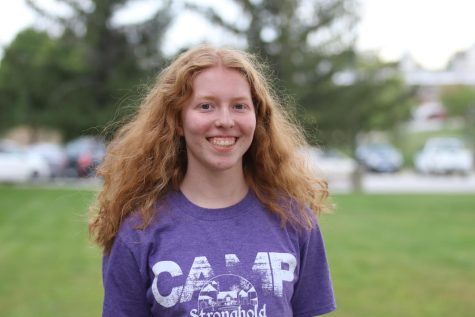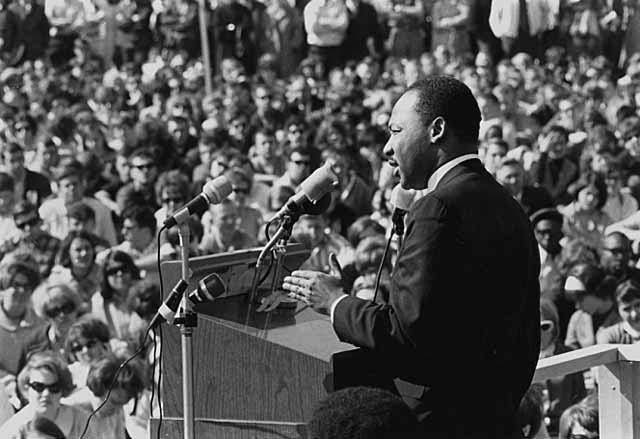Remembering Reverend Dr. Martin Luther King Jr.
A look into what Martin Luther King Jr. accomplished, why we celebrate him and what still needs to be done.
Introduced in 1983, the third Monday in January is a federal holiday honoring the Reverend Dr. Martin Luther King, Jr. The day is usually celebrated with parades and marches, service projects, and speeches about civil rights.
The Reverend Doctor Martin Luther King Jr. is remembered as the face of the civil rights movement from 1955 to 1968. He is regarded as the pre-eminent advocate for nonviolent resistance in his work to achieve legal equality for African Americans. He led protests, grassroots movements, and used civil disobedience to get the world to pay attention to his “belief that all men and women, regardless of color or creed, are equal members of the human family.” These beliefs were inspired by his Baptist upbringing and the nonviolent activism of Mahatma Gandhi.
King was a fierce advocate for civil rights and voting rights. He organized the Montgomery Bus Boycott and the March on Washington. His work eventually paid off when the Civil Rights Act of 1964 was passed. This act prohibited discrimination based on race, color, sex, religion, or national origin. Another important moment in the civil rights movement was the passing of the 24th Amendment. This amendment abolished poll taxes, which had previously been used to stop African Americans from voting. In 1964, Martin Luther King Jr. was also awarded the Nobel Peace Prize, and at the time, was the youngest person to receive this award.
Now, we observe this day knowing that the work of Democracy, that Martin Luther King Jr. devoted his life to, is not finished. In 2021, two Acts were introduced to improve the voting system in America. The For the People Act was created to prevent gerrymandering (shaping congressional districts to give one political party an advantage), and make it easier to register to vote. The John Lewis Voting Rights Advancement Act was designed to restore the landmark Voting Rights Act of 1965 since parts have been removed since it was passed 57 years ago. Currently, neither of these acts have been passed but when they are, we can celebrate Reverend Doctor Martin Luther King Jr. For now, we have work to do to protect and take advantage of our right to vote.
You can visit vote411 and vote.gov to register and learn how to vote in the 2022 elections. The Precinct Caucuses, where political parties meet to nominate candidates for their party is February 7th, and students can ask to observe the proceedings and can be youth delegates to the caucuses. The general election, where citizens vote for members of the House of Representatives, Senate, and Governors, will be on November 8th. The process of registering to vote is simple, and your vote can make a huge difference when it comes to electoral outcomes.
Citizens must be 17 years old to register to vote, but you cannot vote unless you will be 18 years old on or before election day. If you are eligible to vote and a registered Democrat or Republican, you can also participate in the Iowa Caucus. If you wish to attend the Iowa Caucus, you may register on Caucus Night for the first time, or to update your registration or switch parties. If you are not eligible to vote in the Caucus, you can still observe, but you will not be able to participate. If you are not yet 18 years old but older than 13, you can sign up to be a Youth Observer or to be a youth delegate.
Here is the link to register to vote online using an Iowa driver’s license (DL) or identification card (ID) number. You can also find local activities observing MLK day at “The Fierce Urgency of Now” and Martin Luther King Jr. Celebration of Human Rights, mlk.uiowa.edu.
Your donation will support the student journalists of West High School. Your contribution will allow us to purchase Scholarship Yearbooks, newsroom equipment and cover our annual website hosting costs.

(she/her) Vivian Polgreen is a senior at West and it is her third year working on staff. She is the news editor and co-managing editor for the online publication....



